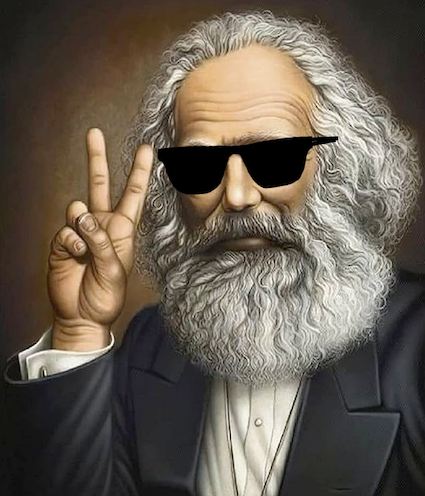Copyleft, CC, Mitzub'ixi Quq Chi'j, 1997-2099
Ike-Cyclopedia






グアテマラにおける司法人類学
Forensic Anthropology in
Guatemala
「司法人類学者(forensic anthropologist):司法人類学とは法医学人類学とも言われる。被害者(おもに死体)を鑑定することで、年齢、性別、生前の持病や障害、死因 (事件か事故か)などを科学的に明らかにする仕事である。法医学の技術や知識のほかに考古学発掘などの技法も要求される。グアテマラは第二次大戦以前から 米国や欧州の文化人類学(民族学)者が数多く研究をおこなってきたが、司法人類学者が活躍するようになるのは1996年末のゲリラと政府軍の停戦協定以降 である。それは内戦時には未曾有の数(20万〜60万それすら正確には不明)の失踪、戦闘死、虐殺、拷問、獄中死などがあり、和平合意後における秘密集合 墓地の発掘など、正確な歴史記録と遺族に遺骨・遺品を返還する必要があるからである。司法人類学者は結果的に国軍の過去の超法規的措置などを発掘の証拠を 通して証明するために、元国軍の兵士や地元の元自警団員から脅迫や嫌がらせを受けることもある。グアテマラでは以前は人類学者と言えば考古学者や民族学者 のことを指したが、現在では司法人類学者と理解されるぐらい、先住民コミュニティからのニーズは高くなった」出典:「司法人類学者(forensic anthropologist)」。
| The Guatemalan
Forensic Anthropology Foundation (Spanish: Fundación de Antropología
Forense de Guatemala, or FAFG) is an autonomous, non-profit, technical
and scientific non-governmental organisation. Its aim is to strengthen
the administration of justice and respect for human rights by
investigating, documenting, and raising awareness about past instances
of human rights violations, particularly unresolved murders, that
occurred during Guatemala's 30-year-long Civil War. Its main tool in pursuing this goal is the application of forensic anthropology techniques in exhumations of clandestine mass graves. Its endeavours in this regard allow the relatives of the disappeared to recuperate the remains of their missing family members and to proceed with burials in accordance with their beliefs, and enable criminal prosecutions to be brought against the perpetrators. |
グアテマラ法医人類学財団(スペイン語:Fundación de
Antropología Forense de
Guatemala、FAFG)は、自律した非営利の技術的・科学的非政府組織である。その目的は、グアテマラの30年にわたる内戦中に起きた過去の人権
侵害、特に未解決の殺人事件を調査、文書化し、認識を高めることによって、司法の運営と人権の尊重を強化することである。 この目標を追求するための主な手段は、秘密の集団墓地の発掘における法人類学の技術の応用である。この取り組みにより、失踪者の親族は行方不明の家族の遺骨を取り戻し、彼らの信念に従って埋葬を進めることができる。 |
| History In 1990 and 1991, various groups of survivors began to report to the authorities the existence of clandestine graves in their communities, most of which contained the bodies of Maya campesinos massacred during the "scorched earth" policy pursued by the government in the early 1980s.[1] The forensic services of the Guatemalan judiciary began to investigate some of these cases, but they failed to pursue them to their conclusion. Consequently, in 1991, the survivors' groups contacted Dr. Clyde Snow, a renowned U.S. forensic anthropologist who had previously overseen exhumations in Argentina in the wake of that country's Dirty War and had helped found the Argentine Forensic Anthropology Team. Snow arrived in Guatemala, accompanied by forensic anthropologists from Argentina and Chile, and began the dual task of conducting the first exhumations and training the future members of the Guatemalan Forensic Anthropology Team (Equipo de Antropología Forense de Guatemala). The Team was supported in its early years by a donation from the American Association for the Advancement of Science of the United States, and its first director was Stefan Schmitt, who has since worked on exhumations in Rwanda and Former Yugoslavia. In July 1992 the EAFG carried out its first field project at San José Pachó Lemoa in El Quiché department. The Team was restyled as a "Foundation" in 1997. That same year, the Historical Clarification Commission (Guatemala's truth and reconciliation commission, set up as a part of the peace accords that ended the armed conflict) asked it to conduct four field investigations in order to secure physical evidence to back up the testimony it had heard from survivors; this evidence was included in the Commission's final report, Guatemala: Memory of Silence. By October 2004, the FAFG had investigated a total of 349 clandestine burial sites and had recovered 2,982 sets of human remains. The current director of the FAFG is Fredy Peccerelli. |
歴史 1990年と1991年、さまざまな生存者グループが、自分たちのコミュニティに秘密の墓が存在することを当局に報告し始めた。そのほとんどは、1980年代初頭に政府が進めた「焦土化」政策で虐殺されたマヤのカンペシーノ(農民)たちの遺体であった。 その結果、1991年、生存者団体は、以前アルゼンチンのダーティー戦争(=汚い戦争)後に発掘調査を監督し、アルゼンチン法医人類学チームの設立に貢献した米国の著名な法人類学者クライド・スノー博士に連絡を取った。 スノーはアルゼンチンとチリの法人類学者を伴ってグアテマラに到着し、最初の発掘調査の実施とグアテマラ法人類学チーム(Equipo de Antropología Forense de Guatemala)の将来のメンバーのトレーニングという2つの仕事を始めた。 チーム設立当初は、米国科学振興協会からの寄付金によって支援され、初代ディレクターは、ルワンダや旧ユーゴスラビアでの発掘調査に従事したステファン・ シュミットであった。1992年7月、EAFGはエル・キチェ県のサン・ホセ・パチョ・レモアで最初の現地プロジェクトを実施した。 1997年、チームは「財団」に改組。同年、歴史解明委員会(武力紛争を終結させた和平合意の一環として設置されたグアテマラの真実和解委員会)から、生 存者から聞いた証言を裏付ける物的証拠を確保するため、4件の現地調査を行うよう要請された: 沈黙の記憶』である。2004年10月までに、FAFGは合計349の密葬地を調査し、2,982体の遺骨を回収した。 FAFGの現所長はフレディ・ペチェレリ。 |
| Guatemalan Civil War Fredy Peccerelli (FAFG Director) Fredy Peccerelli (born 1971),[1] a forensic anthropologist, is the director and one of the founding members of the Guatemalan Forensic Anthropology Foundation in Guatemala City, a nongovernmental organization that exhumes mass graves of victims of Guatemala's civil war. Peccerelli, along with members of his immediate family, has been the subject of repeated death threats as a result of his work.[2] In 1999, he was chosen by CNN and Time magazine as one of the "50 Latin American Leaders for the New Millennium".[3] In addition to his ongoing work in Guatemala, Peccerelli has conducted exhumations of mass graves in post-war Bosnia and Herzegovina. He testified about this work at the International Criminal Tribunal for the Former Yugoslavia on 13 March 2007.[4] |
法人類学者であるフレディ・ペチェレリ(1971年生まれ)[1]は、
グアテマラ・シティにあるグアテマラ法人類学財団の創設メンバーの一人であり、グアテマラ内戦の犠牲者の集団墓地を発掘する非政府組織であるグアテマラ法
人類学財団の理事である。ペチェレッリは、彼の肉親とともに、その活動の結果、度重なる殺害予告の対象となっている[2]。 1999年には、CNNとタイム誌によって「新千年紀のラテンアメリカのリーダー50人」に選ばれた[3]。 グアテマラでの継続的な活動に加え、ペチェレッリは戦後のボスニア・ヘルツェゴビナで集団墓地の発掘を行った。2007年3月13日、旧ユーゴスラビア国際刑事裁判所において、この活動について証言した[4]。 |
| Impunidad es una excepción de castigo o escape de la sanción que implica una falta o delito. En el derecho internacional de los derechos humanos, se refiere a la imposibilidad de llevar a los violadores de los derechos humanos ante la justicia y, como tal, constituye en sí misma una negación a sus víctimas de su derecho a ser reparadas. La impunidad es especialmente común en países que carecen de una tradición del imperio de la ley, sufren corrupción política o tienen arraigados sistemas de mecenazgo político, o donde el poder judicial es débil o las fuerzas de seguridad están protegidas por jurisdicciones especiales o inmunidades. Concepto El Conjunto de principios para la protección y la promoción de los derechos humanos mediante la lucha contra la impunidad, promulgado por la comisión de Derechos Humanos de las Naciones Unidas el 8 de febrero de 2005. define la impunidad como: Cita|La inexistencia, de hecho o de derecho, de responsabilidad penal por parte de los autores de violaciones, así como de responsabilidad civil, policíaca administrativa o disciplinaria, porque escapan a toda investigación con miras a su inculpación, detención, procesamiento y, en caso de ser reconocidos culpables, condena a penas apropiadas, incluso a la indemnización del daño causado a sus víctimas.1}} El primer principio del mismo documento establece que: La impunidad constituye una infracción de las obligaciones que tienen los Estados de investigar las violaciones, adoptar medidas apropiadas respecto de sus autores, especialmente en la esfera de la justicia, para que las personas sospechosas de responsabilidad penal sean procesadas, juzgadas y condenadas a penas apropiadas, de garantizar a las víctimas recursos eficaces y la reparación de los perjuicios sufridos de garantizar el derecho inalienable a conocer la verdad y de tomar todas las medidas necesarias para evitar la repetición de dichas violaciones.1 Impunidad y derechos humanos Las comisiones de la verdad y reconciliación son frecuentemente establecidas por naciones que vienen saliendo de periodos marcados por las violaciones a los derechos humanos —golpes de Estado, dictaduras militares, guerras civiles, etc.— con el fin de esclarecer los eventos del pasado. Si bien este tipo de mecanismos pueden ayudar en el procesamiento final de los crímenes y el castigo de los culpables, a menudo han sido criticados por la perpetuación de la impunidad al permitir que los infractores busquen la protección en las leyes de amnistía que hayan sido promulgadas. El objetivo principal del Estatuto de Roma, constitutivo de la Corte Penal Internacional, que fue adoptada el 17 de julio de 1998 y entró en vigencia el 1 de julio de 2002, es «poner fin a la impunidad de los autores de esos crímenes y a contribuir así a la prevención de nuevos crímenes».2 Top 5 de los países más impunes del mundo El índice Global de Impunidad que periódicamente realiza la Universidad de las Américas Puebla de México a 59 países del globo, en 2019 lanzó los siguientes resultados.3 1- Bandera de Brasil Brasil 2- Flag of Peru.svg Perú 3- Flag of Mexico.svg México 4- Bandera de Venezuela Venezuela 5- Bandera de Colombia Colombia -Véase todos los datos a nivel mundial de 2020.4 |
不処罰とは、不正行為や犯罪に対する処罰の例外、あるいは処罰から逃れることである。 国際人権法においては、人権侵害者を裁判にかけなかったことを指し、それ自体が被害者の補償を受ける権利を否定することになる。不処罰は、法の支配の伝統 がなく、政治腐敗に苦しみ、政治的庇護のシステムが定着している国や、司法が脆弱であったり、治安部隊が特別な司法権や免責特権によって保護されている国 で特によく見られる。 概念 国連人権委員会が2005年2月8日に公布した「不処罰と闘うための行動を通じて人権を保護し促進するための一連の原則」は、不処罰を次のように定義している: 引用|法律上または事実上、侵害の加害者側に刑事責任がないこと、また民事上、警察上、民事上の責任がないこと。 なぜなら、起訴、逮捕、拘留、起訴、有罪の場合、被害者への損害賠償を含む適切な刑罰を科すことを目的とした捜査から逃れるためである1}}。 同文書の第一原則は次のように述べている: 不処罰は、侵害を調査し、その加害者に関して適切な措置を講じ、特に司法の分野において、刑事責任が疑われる者が起訴され、裁判にかけられ、適切な刑罰を 言い渡されることを確保し、被害者が被った損害に対する効果的な救済と補償を確保し、真実を知る不可侵の権利を保証し、そのような侵害の再発を回避するた めに必要なあらゆる措置を講じるという、国家の義務違反を構成する1。 不処罰と人権 真相究明・和解委員会は、クーデター、軍事独裁政権、内戦など、人権侵害が顕著だった時代から脱却した国家が、過去の出来事に光を当てるために設置するこ とが多い。このような機構は、犯罪の最終的な訴追と加害者の処罰を助けることができる一方で、しばしば、制定された恩赦法による保護を違反者に求めること を許し、不処罰を永続させるという批判を受けてきた。 1998年7月17日に採択され、2002年7月1日に発効した国際刑事裁判所を設置するローマ規程の主な目的は、「そのような犯罪の加害者に対する不処罰に終止符を打ち、その結果、さらなる犯罪の防止に貢献する」ことである2。 世界で最も処罰されていない国トップ5 メキシコのプエブラ米州大学が定期的に世界59カ国を調査している「世界不処罰指数」は、2019年に以下のような結果を発表した3。 1- ブラジルの国旗 ブラジル 2- ペルーの国旗.svg ペルー 3- メキシコの国旗.svg メキシコ 4- ベネズエラの国旗 Venezuela 5- コロンビアの国旗 コロンビア -2020.4からの全世界のデータを見る |
| Corrupción Leyes de impunidad Coalición contra la Impunidad en Argentina Comisión Internacional Contra la Impunidad en Guatemala Día Internacional para Poner Fin a la Impunidad de los Crímenes contra Periodistas |
|
| https://es.wikipedia.org/wiki/Impunidad |
|
| La Comisión Internacional contra la Impunidad en Guatemala
(CICIG) fue una comisión creada el 12 de diciembre de 2006 y disuelta
el 3 de septiembre de 2019. Fue creada por medio del acuerdo firmado
entre las Naciones Unidas y el Gobierno de Guatemala, tras la opinión
consultiva favorable de la Corte de Constitucionalidad en mayo de 2007.
Fue aprobado posteriormente por el Congreso de la República de
Guatemala el 1 de agosto de 2007. La CICIG fue establecida como un órgano independiente de carácter internacional, cuya finalidad era apoyar al Ministerio Público, la Policía Nacional Civil y a otras instituciones del Estado, tanto en la investigación de los delitos cometidos por integrantes de los cuerpos ilegales de seguridad y aparatos clandestinos de seguridad, como en general en las acciones que tiendan al desmantelamiento de estos grupos, mediante el apoyo a la investigación y persecución penal de un número limitado de casos complejos, así como mediante otras acciones dentro de su mandato, destinadas a fortalecer a las instituciones del sector Justicia para que puedan continuar enfrentando a estos grupos ilegales en el futuro. El comisionado a cargo para el período 2014-2019 es el fiscal colombiano Iván Velásquez Gómez que para este trabajo es galardón del Premio Right Livelihood del año 2018. El 7 de enero de 2019, el acuerdo entre la ONU y Guatemala fue unilateralmente finalizado por el presidente Jimmy Morales, aludiendo a la participación de la CICIG en actos ilegales, abuso de poder y actos en contra de la constitución del país.1 La ONU rechazó y condenó este proceder,1 a la vez que la corte legal más alta del país se pronunciaba en contra de la decisión de Morales.2 Esta, apoyada por la élite empresarial del país,3 desencadenó una crisis institucional, debido al conflicto entre el gobierno y la Corte de Constitucionalidad. A Morales se le investiga debido a irregularidades en su campaña electoral.45 |
グアテマラにおける不処罰に反対する国際委員会(CICIG)は、
2006年12月12日に創設され、2019年9月3日に解散した委員会である。2007年5月の憲法裁判所の勧告的意見を受け、国連とグアテマラ政府と
の間で締結された合意により設立された。その後、2007年8月1日にグアテマラ共和国議会で承認された。 CICIGは国際的な独立機関として設立され、その目的は、検察庁、国家市民警察、その他の国家機関を支援し、違法な治安部隊や秘密治安組織の構成員によ る犯罪の捜査や、これらの集団の解体を目的とした活動全般において、限られた数の複雑な事件の捜査と起訴を支援することであり、また、その権限の範囲内 で、司法部門の機関を強化し、将来もこれらの違法集団に立ち向かえるようにすることを目的としたその他の活動も行っている。2014年から2019年の期 間を担当するコミッショナーは、コロンビア人検事のイバン・ベラスケス・ゴメスであり、この功績により2018年ライト・ライブリフッド賞を受賞してい る。2019年1月7日、国連とグアテマラの協定は、ジミー・モラレス大統領によって、CICIGが違法行為、権力の乱用、国の憲法に反する行為に関与し ているとして、一方的に打ち切られた1。国連はこの行動を拒否し、非難したが1、同国の最高裁判所はモラレスの決定を否定する判決を下した2。同国のビジ ネスエリート3によって支持されたこの決定は、政府と憲法裁判所の対立により、制度的危機を引き起こした。モラレスは選挙運動における不正の疑いで捜査を 受けている45。 |
| https://es.wikipedia.org/wiki/Comisi%C3%B3n_Internacional_Contra_la_Impunidad_en_Guatemala |
リンク先
文献
その他の情報
Copyleft, CC, Mitzub'ixi Quq Chi'j, 1997-2099





